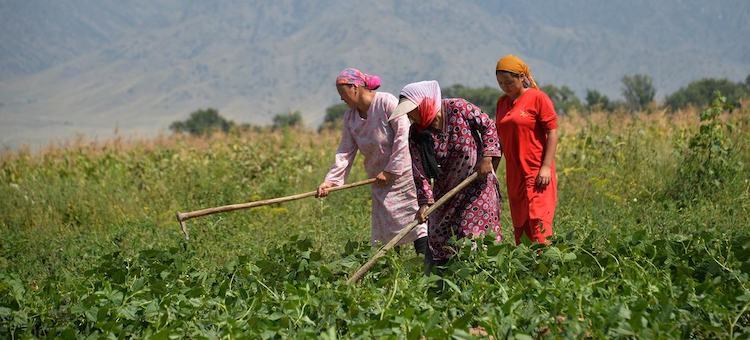By Radwan Jakeem
NEW YORK, 13 April 2023 (IDN) — The UN’s Food and Agriculture Organization (FAO) is convinced that equalizing the playing field for women in the agriculture and food sectors could boost growth and feed millions.
It is estimated that more than one-third of women are employed in agrifood systems, which include food and non-food agricultural products as well as related activities such as food storage, transportation, processing and distribution.
According to a new FAO report, gender inequalities, including lack of access to knowledge and resources and a higher unpaid care burden, explain a 24 per cent productivity gap between men and women farmers.
In the agricultural sector, women are also paid nearly 20 per cent less than men.
“If we tackle the gender inequalities endemic in agrifood systems and empower women, the world will take a leap forward in addressing the goals of ending poverty and creating a world free from hunger”, said FAO Director-General Qu Dongyu.
Despite growing global hunger, FAO estimates that closing the gender gap in farm productivity and wage gap in agricultural employment would increase global gross domestic product by nearly $1 trillion and reduce food insecurity by 45 million people.
Inequalities due to structural factors
The report shows that women’s access to land, services, credit and digital technology lags behind men’s, while a greater burden of unpaid care limits their opportunities for education, training and employment. According to FAO, discriminatory social norms hinder women from making equal contributions to agriculture and food by strengthening gender barriers to knowledge, resources and social networks.
It is still necessary to ensure that women own land in proportion to men in many countries and that legal frameworks protect their rights, the report says. The authors of the paper describe the slow pace of change in terms of women farmers’ access to livestock and essentials like irrigation and fertilizers as alarming.
In agrifood systems, women’s roles are marginalized and their working conditions are worse than—irregular, informal, part-time, low-skilled, or labour-intensive.
Boosting growth and curbing hunger
According to the UN food agency, “challenges to women’s full and equal participation in society”. The employment in agrifood systems holds back productivity and perpetuates wage gaps.
A level playing field for farm productivity and agricultural wages would add 1 percent to global gross domestic product, or almost $1 trillion, and reduce food insecurity by two percentage points, benefiting 45 million people.
Global hunger is on the rise, making this projection striking. According to the UN World Food Programme (WFP), 345 million people worldwide face crisis levels of food insecurity this year, an increase of almost 200 million since early 2020. 43 million of these people are on the verge of famine.
Potential untapped
Also, the report’s authors show that agricultural projects that empower women have broad economic and social repercussions.
The FAO estimates that by empowering half of small-scale producers, an additional 58 million people’s incomes would be increased and 235 million would become more resilient.
A growing number of women are employed in agricultural systems in some developing countries, indicating the potential impact equality-boosting interventions could have. As an example, 71% of working women in southern Asia work in this sector (versus 47% for men).
‘Making agrifood systems work for women’
FAO notes that monitoring and accelerating progress on gender equality in agrifood systems depends on “collecting and using high-quality data, disaggregated by gender, age, and other forms of social and economic differentiation”, which is lacking, as well as rigorous gender research.
On a policy level, the report’s authors recommend urgent action to close “access gaps related to assets, technology and resources”. According to them, improving women’s productivity in agriculture requires interventions that “address care and domestic work burdens, provide education and training, and strengthen land tenure security”.
As the UN agency’s study underscores, “when economies shrink, women’s jobs go first”, which was the case during the COVID-19 pandemic.
The report’s foreword states, “Women have always worked in agrifood systems. It is time we make agrifood systems work for women.” [IDN-InDepthNews]
© FAO/Vyacheslav Oseledko | Women farmers work in a field in Bishkek, Kyrgyzstan.


